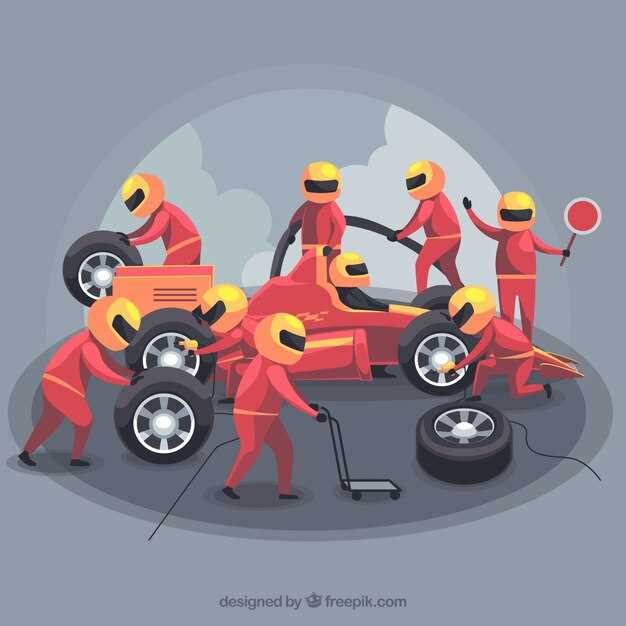
In the competitive world of motorsports, partnering with a race car builder can be a crucial step toward achieving success on the track. Customizing a car to meet specific performance standards requires a deep understanding of engineering and design principles, making it essential to choose a builder who aligns with your vision. This partnership can lead to the creation of a uniquely tailored racing machine that stands out in both performance and aesthetic appeal.
However, like any business collaboration, there are inherent risks involved in working with a race car builder. Understanding these risks is vital for anyone looking to enter into such a partnership. Factors such as budget overruns, differing expectations, and the builder’s reputation can significantly impact the project’s outcome. It is crucial to conduct thorough research and have open communication to mitigate potential pitfalls.
This article aims to explore practical tips for choosing the right race car builder, while also highlighting the common risks associated with this venture. By carefully considering both the benefits and challenges, you can make an informed decision that will propel your racing ambitions forward.
Evaluating the Expertise of Race Car Builders

When considering a partnership with a race car builder, it is crucial to evaluate their expertise meticulously. A skilled fabricator not only possesses technical skill but also has a deep understanding of race car dynamics, engineering principles, and safety standards. Begin by examining their portfolio of custom builds; successful past projects can provide insights into their capabilities and creativity.
Another important factor is the builder’s experience with specific types of racing. Different racing categories, such as Formula, NASCAR, or drag racing, demand various custom modifications and tuning. A builder’s familiarity with the specific requirements of your chosen category can significantly influence performance and compliance with regulations.
Engage with previous clients to gather feedback on their satisfaction and the durability of the custom cars produced. Inquire about the builder’s communication style during the project, as effective collaboration is key to a successful outcome. Trustworthy builders should provide transparent updates and be open to suggestions throughout the process.
In addition to technical expertise, assess the fabricator’s access to cutting-edge tools and technology. Advanced equipment can enhance precision and efficiency during the building process, leading to a superior final product. Finally, consider any relevant certifications or partnerships that indicate a commitment to excellence and ongoing education in the ever-evolving field of race car construction.
Understanding Financial Considerations in Custom Car Projects
When embarking on a custom car project, financial considerations play a crucial role in determining the overall feasibility and success of the endeavor. Working with a skilled fabricator can significantly influence costs, quality, and timelines. It is essential to establish a clear budget, factoring in materials, labor, and any unforeseen expenses that may arise throughout the building process.
Once you have a budget, prioritize the aspects of your project that will yield the most impact on performance and aesthetics. Custom components, whether for the engine, suspension, or bodywork, can vary greatly in price. Opting for high-quality parts may drive up initial costs, but they often provide better longevity and performance. Conversely, opting for lower-cost components could lead to costly repairs down the line.
Additionally, understanding the payment structure of your fabricator is vital. Some builders may require initial deposits, while others operate on a milestone payment system. Being clear about these terms and ensuring they align with your financial capabilities can help mitigate potential conflicts during the project.
It’s also wise to consider potential return on investment. While custom cars often cater to personal passion rather than resale value, understanding market trends and vehicle appreciation can provide insight into how much you might recoup if you ever decide to sell. Documenting the build process and keeping records of all expenses can help verify value to future buyers.
Lastly, be prepared for contingencies. Delays, changes in design, or issues with parts can all lead to increased costs. Allocating a percentage of your budget for unexpected expenses can provide financial cushion and reduce stress during the project.
Navigating Legal and Safety Regulations in Custom Fabrication

When partnering with a race car builder for custom fabrication, understanding legal and safety regulations is crucial to ensure compliance and protect both your investment and safety on the track.
Here are key considerations:
- Understand Local Laws: Regulations can vary significantly by region. Research your local laws concerning custom vehicle modifications to avoid penalties.
- Safety Standards: Familiarize yourself with the safety standards set by governing bodies such as the FIA or SFI. These organizations have specific criteria for chassis construction, roll cages, and safety equipment.
- Insurance Requirements: Ensure that your custom car meets the insurance requirements. Some insurers may have specific mandates regarding safety features and modifications.
- Track Regulations: Different racetracks may have unique regulations regarding vehicle specifications. Always check with the track officials to ensure compliance before hitting the track.
Approach to custom fabrication should include meticulous documentation of all changes made to the vehicle. This documentation can serve as proof of compliance with safety regulations and ownership of unique modifications.
- Consult Professionals: Engage with legal experts in motorsports and safety engineers to guide you through the necessary regulations.
- Regular Inspections: Schedule periodic inspections of your custom car to maintain safety standards, ensuring that your vehicle remains race-ready.
- Stay Updated: Laws and safety regulations can evolve. Stay informed about any changes that might affect your custom fabrication.
By understanding and navigating these legal and safety regulations effectively, you can enjoy the thrill of racing while ensuring your custom car is both compliant and safe.












